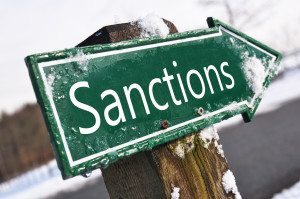 On July 15, 2015, the USPTO Director entered an order excluding Richard Polidi from practice before the Office. The USPTO Director’s disciplinary action came after the Director of the Office of Enrollment and Discipline (OED) filed a complaint for reciprocal discipline predicated on Mr. Polidi’s disbarment from State Bar of North Carolina.
On July 15, 2015, the USPTO Director entered an order excluding Richard Polidi from practice before the Office. The USPTO Director’s disciplinary action came after the Director of the Office of Enrollment and Discipline (OED) filed a complaint for reciprocal discipline predicated on Mr. Polidi’s disbarment from State Bar of North Carolina.
Based on public documents filed in the North Carolina disciplinary matter, Mr. Polidi was admitted to practice law in 2004. In September 2012, Mr. Polidi received approximately $16,000 in connection with the representation of a client. According to the North Carolina disciplinary proceedings, at the time he received the funds, Mr. Polidi knew that his client had assigned the right to those funds to a third party. Instead of providing the funds to the third party, however, Mr. Polidi was found to have used the $16,000 for his own personal benefit. This, of course, was done without the third-party’s authorization.
Mr. Polidi eventually transferred to the client an amount at least equal to the entrusted funds he had received in connection with the case. Based on these undisputed facts, the North Carolina court found as a matter of law that Mr. Polidi’s knowing misuse of third-party funds warranted disbarment from the North Carolina bar.
 In accordance with the USPTO’s disciplinary rules regarding reciprocal discipline codified in 37 C.F.R. § 11.24, Mr. Polidi was required to notify the Director of the Office of Enrollment and Discipline (OED) within thirty (30) days of his disbarment in North Carolina. It is not clear from the very limited records of disciplinary proceedings that are publicly available in the OED’s “FOIA Reading Room” whether Mr. Polidi provided the requisite notice. In any event, the OED Director learned of Mr. Polidi’s disbarment and filed with the USPTO Director a complaint for reciprocal discipline predicated on the North Carolina disbarment.
In accordance with the USPTO’s disciplinary rules regarding reciprocal discipline codified in 37 C.F.R. § 11.24, Mr. Polidi was required to notify the Director of the Office of Enrollment and Discipline (OED) within thirty (30) days of his disbarment in North Carolina. It is not clear from the very limited records of disciplinary proceedings that are publicly available in the OED’s “FOIA Reading Room” whether Mr. Polidi provided the requisite notice. In any event, the OED Director learned of Mr. Polidi’s disbarment and filed with the USPTO Director a complaint for reciprocal discipline predicated on the North Carolina disbarment.
Complaints for reciprocal discipline are routinely filed with the USPTO Director whenever a patent or trademark attorney receives public discipline on ethical grounds by another jurisdiction. Indeed, since the USPTO first promulgated its rule on reciprocal discipline in September 2008, more than 80 practitioners have been reciprocally disciplined by the USPTO Director.
Under the rules of reciprocal discipline, the USPTO does not re-try the other jurisdiction’s disciplinary action and its review is extremely limited. Specifically, pursuant to 37 C.F.R. § 11.24(d), Mr. Polidi had the burden of presenting clear and convincing evidence that the identical disbarment was not appropriate based on one or more of the following factors:
The procedure in North Carolina was so lacking in notice or opportunity to be heard as to constitute a deprivation of due process;
There was such infirmity of proof establishing the conduct as to give rise to the clear conviction that the Office could not, consistently with its duty, accept as final the conclusion on that subject; or
The imposition of the same discipline would result in grave injustice.
According to the USPTO’s decision,
After receiving the Notice and Order, Respondent sought and received multiple extensions of time to respond to the Notice and Order. He also filed several requests that were in the nature of discovery requests; however, reciprocal matters in this current stage have a limited record and there is no opportunity for discovery, and so these requests were denied. See 37 C.F.R. § l l.24(b). In an order dated May 14, 2015, Respondent was notified that he was granted a final extension request and that he was required to respond to the Notice and Order on or before June 11, 2015, with no further extension to be provided absent extraordinary circumstances. Respondent has not filed a response to the Notice and Order. He was notified via email dated June 30, 2015 that no response had been received.
Since no response was received, and pursuant to the USPTO’s reciprocal discipline rule, the USPTO Director was required to impose the identical sanction imposed in North Carolina. Under the USPTO’s rules, a disbarment is not necessarily permanent. Under the USPTO’s rules, an order of “exclusion” from the USPTO is treated as a five-year suspension. Consequently, reinstatement may be sought five years from the date when Mr. Polidi demonstrated to the OED his compliance with the duties of a suspended or excluded practitioner set forth in 37 C.F.R. Section 11.24.